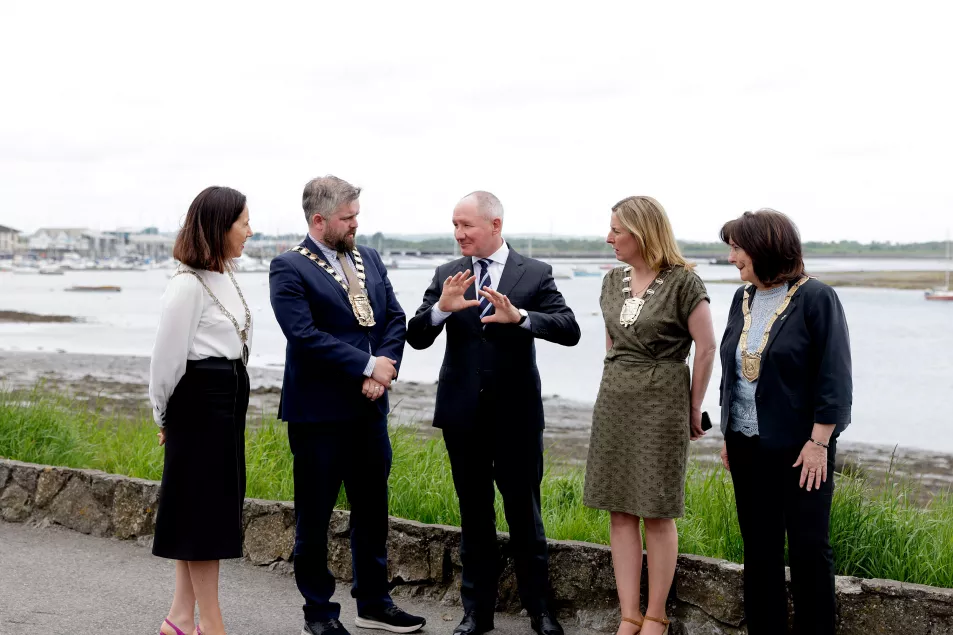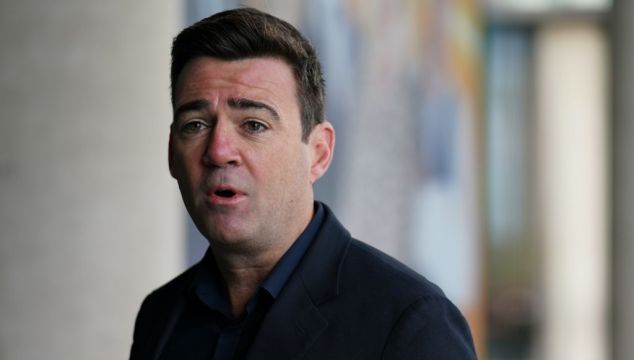The second meeting of the Citizens’ Assembly on a directly elected mayor of Dublin has concluded after hearing from various mayors from the city and abroad about what the role can entail.
Mayor of Greater Manchester Andy Burnham told the assembly on Saturday that he was “really pleased” to see Limerick and Dublin move towards the system of a directly elected mayor.
Referencing the 1989 Hillsborough disaster, Mr Burnham said it was a “prime example of how an overcentralised political system completely ignores the voice of a city crying for justice”.
“When you’re starting at the city level, its a place-first approach, not a party-first approach. It just makes politics work differently.”
Five years on since he took up his role in Greater Manchester, Mr Burnham said the system is “superior to London”, and he likes to believe that the voice of the north of England is “getting louder and stronger all the time”.
The assembly also heard via video-link from Vice-Mayor of Paris Anouche Toranian and former member of Boston City Council Larry DiCara about the mayoral structure.
Ms Toranian spoke about the complex way that Paris’s mayoral system works, and outlined the extent of public engagement in the way the city is governed.
“Since it is a capital city and it has a history called ‘a revolutionary city’, the mayor is not fully in charge of certain specific fields. Some competencies fall within the remit of the prefect of police,” she said, adding that traffic issues are a joint-competency of both the mayor and the prefect of police.
Mr DiCara told the assembly that the lessons from Boston and Massachusetts are that different systems work best for different cities depending on their needs.
“I would encourage you not to make it a complicated system. Democracy can work quite well without being complicated in my opinion,” he said.
“Make it clear in writing as to which group does what, because sometimes that is unclear.”
Saturday’s meeting also included a panel discussion with the mayors of the four Dublin local authorities, Alison Gilliland, Lord Mayor of Dublin; Lettie McCarthy, Cathaoirleach of Dun Laoghaire Rathdown County Council; Seana O Rodaigh, Mayor of Fingal; and Peter Kavanagh, Mayor of South Dublin County.
The mayors unanimously expressed their support for the introduction of a directly elected mayor for Dublin.

Chairman Jim Gavin, 12 elected councillors and 67 randomly selected citizens of Dublin City and County met at The Grand Hotel Malahide to hear evidence and discuss what was said at the weekend.
Speaking after the conclusion of the meeting on Sunday, Mr Gavin said “a significant level of insight” was given into what role current Dublin mayors play and how directly elected mayors operate in other similar cities.
The assembly is due to conclude its work later this year before sending its recommendations to the Houses of the Oireachtas.
A Citizens’ Assembly on biodiversity, chaired by Dr Aoibhinn Ni Shuilleabhain, is also under way at the moment, with a Citizens’ Assembly on drugs scheduled to begin early next year.







